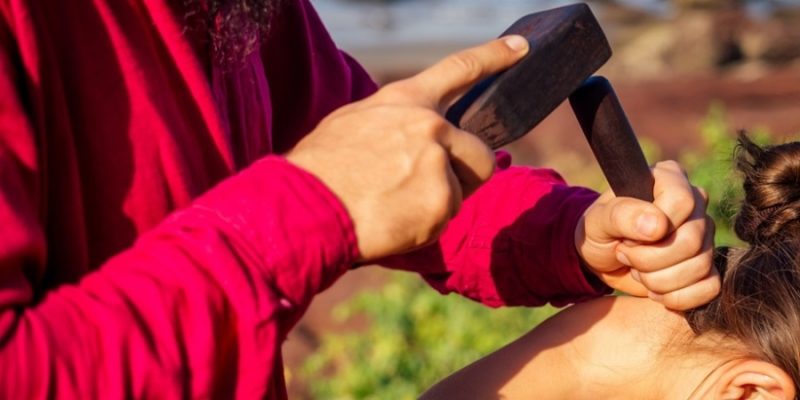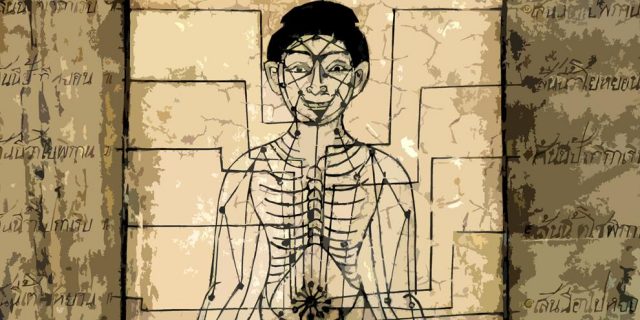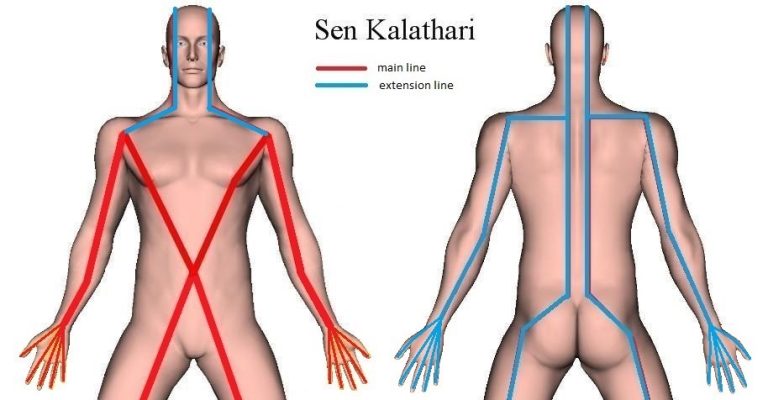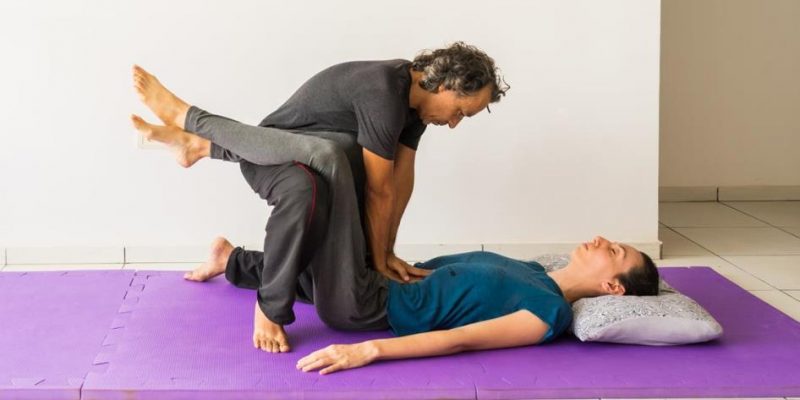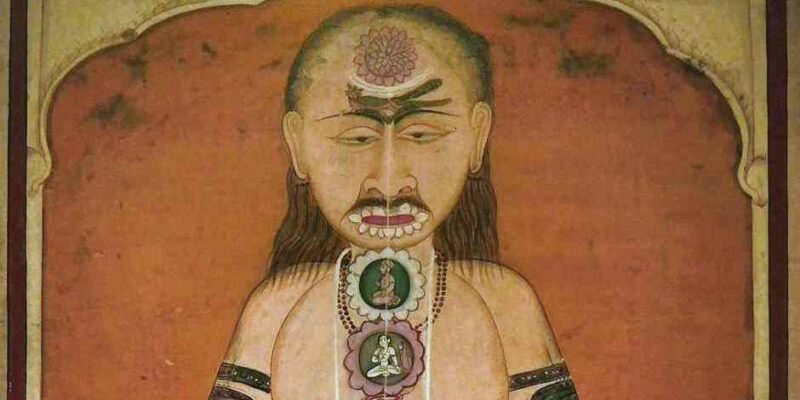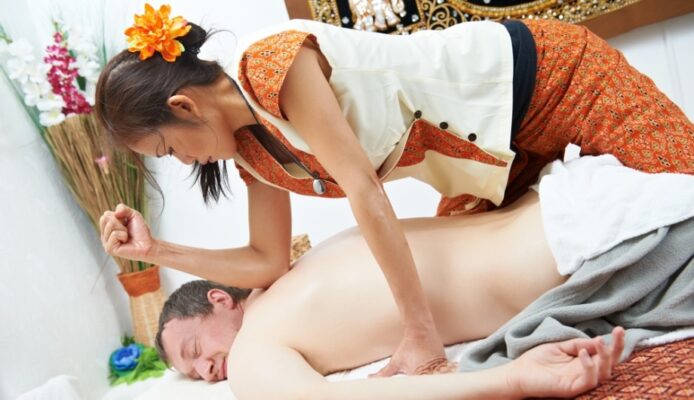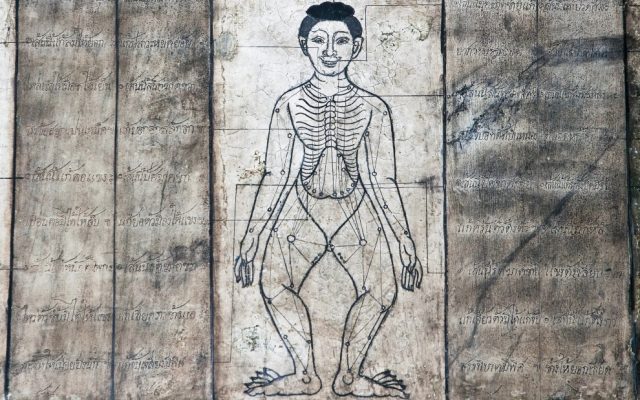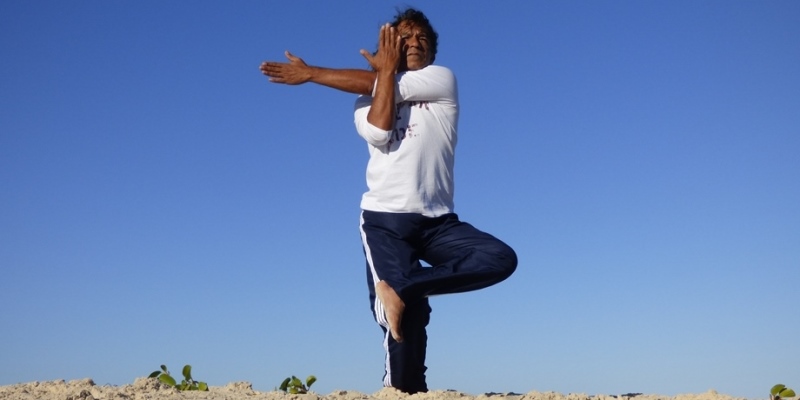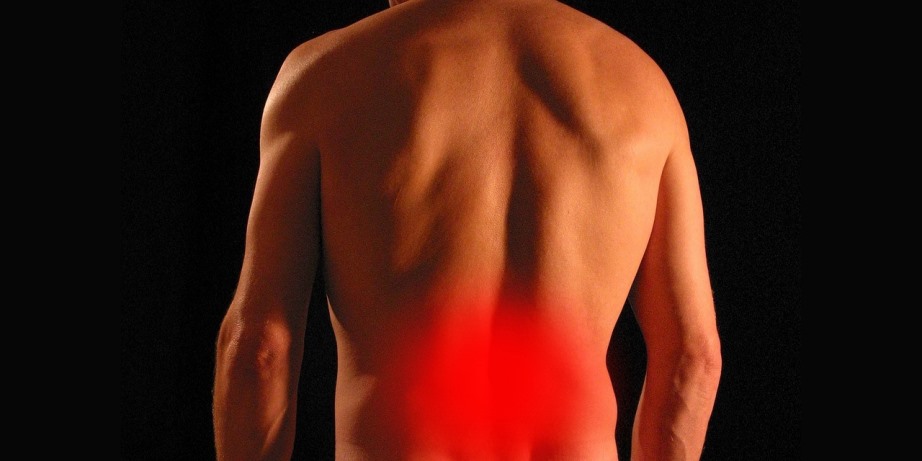
Low Back Pain — also called lower back pain or lumbago — is one of the most common complaints, pains, or discomforts, and we’re going to take a look at how we can tackle or ease low back pain problems with help of Thai Massage therapy, more specifically looking at the Sib Sen Energy Lines that are involved.

Causes and types of low back pain are diverse and incredibly complex, and it goes too far here to embark on all the related details. That’s not the goal of this post; I just want to point out what we can do from out a perspective of treating the appropriate Sen Lines.
In my daily practice, I found that most of the lower back pain problems, including sciatic nerve pains (and apart from structural issues, certain diseases, or genetic make-up) are caused by a combination of weak back and abdominal muscles, and/or shortened, contracted or tensed muscles of the legs (notably the hamstrings), abdomen, gluteus, and lower back.
These problems are often caused by sedentary, desk, chair, or couch bound lifestyles (lots of sitting, lack of movement and exercise, lack of muscle stretches) or emotional traumas. So, apart from working with Thai Massage on the acute issues, my advice to clients is to make a change in their lifestyles. The latter is perhaps the hardest part of the “treatment” and renders life of a massage therapist difficult if a client doesn’t make any changes.
In any case, as a Thai Massage practitioner I would usually apply one or more of the following techniques to alleviate low back pains, with of course taking into consideration necessary precautions and contraindications:
- Relaxing the following muscles with sustained pressure, stretching or nerve-triggering: piriformis, gluteus, hamstrings (back thigh), quadriceps (front thigh), abductors, inner thigh adductors, latissimus dorsi, abdominal (rectus abdominis), erector spinae, quadratus lumborum and Iliopsoas muscle;
- Opening and mobilizing the hip joint;
- Mobilizing the sacroiliac joint, sacrum, and coccyx;
- Clearing and opening the pelvic area;
- Deeply massaging the abdominal region to clear knots, tangles, twists, and adhesions;
- Opening the Wind Gates, that is “Blood Stops” on the arteries in the groins (femoral arteries);
- Realigning lumbar and thoracic vertebrae by using twists or cracks, let’s say, applying chiropractic techniques;
- Applying acupressure and stretches on/for the following Sen Energy lines:
1). Sen Ittha and Sen Pingkhala (third outside and first inside line of the upper leg, first line of the back near the spine),
2). Sen Kalathari (second lines inside and outside of the upper legs, abdominal area, and the second lines of the back, the latter being the “muscle-hill” nearest to the spine),
3). Sen Sumana (notably the extension and branch lines of the abdominal area, the lower back, including the branch-lines running along the back of the legs).
4). Sen Sahatsarangsi and Sen Thawari (first inside and first outside leg lines and extension lines three of the back).
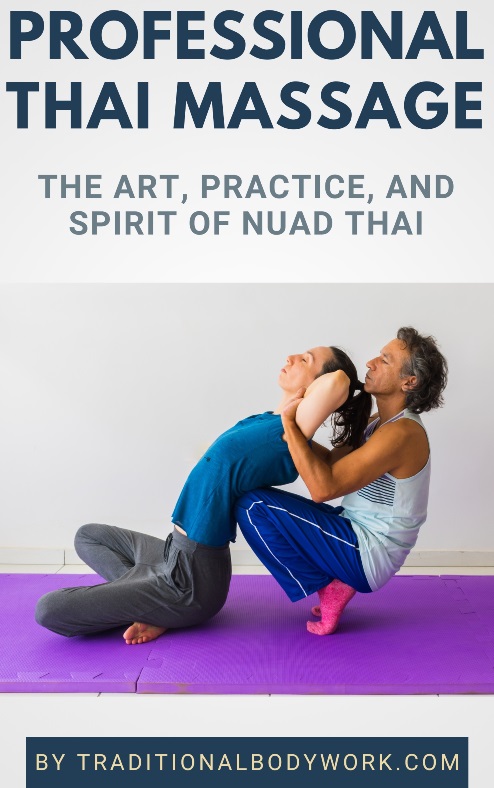
Perhaps it seems like the part of explicitly working with the Sen Lines is marginal compared to the other techniques mentioned, but this is far from the truth.
You see, by relaxing, opening, mobilizing, pressing, massaging, clearing, and realigning the aforementioned areas, one addresses the locations where the Sen Energy Lines mentioned run.
So, what one actually does, and that — I feel — should be the way of looking at things, is “attacking” the appropriate Sen Lines with a variety of Thai Massage techniques with the aim of unblocking and subsequently opening them to enable the free flow of Prana Vital Life Energy.







